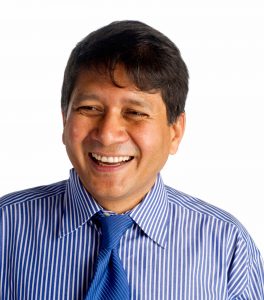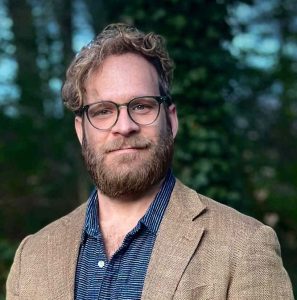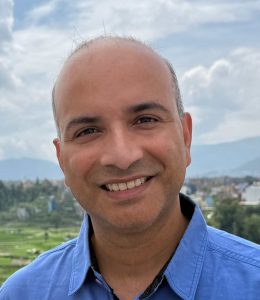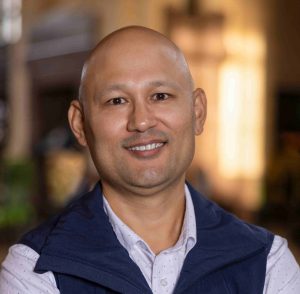EducationUSA App


Dr. William Waldron earned his Ph.D. from the University of Wisconsin–Madison and has taught at Middlebury College since 1996, where he offers courses on Indian and Tibetan Buddhism, comparative philosophies of mind, and theory and method in the study of religion. His scholarship focuses on the Yogācāra school of Indian Buddhism and its relevance to modern thought.
He is the author of The Buddhist Unconscious (Routledge Curzon, 2003) and Making Sense of Mind-Only: Why Yogācāra Matters (Wisdom Publications, 2023). A former Fulbright Scholar in 2007–08 and again in 2025–26, Dr. Waldron’s deep engagement with Asia spans decades of travel and research with scholars across India, Nepal, Tibet, China, and Japan. Beyond academia, he frequently offers talks and workshops in the U.S. and Asia, sharing Buddhist insights with contemporary audiences.

Dr. Nir Kshetri is the Charles A. Hayes Distinguished Professor at the University of North Carolina–Greensboro and a Research Fellow at Kobe University, Japan. Ranked among the world’s top 0.03% of researchers by Elsevier and Stanford University, he has authored sixteen books (with four more forthcoming) and nearly 300 academic articles translated into multiple languages. His work has twice received the Choice Magazine Outstanding Academic Title award, and he is a two-time recipient of the PTC’s Meheroo Jussawalla Research Paper Prize.
A two-time TEDx speaker, Dr. Kshetri’s talks explore how technologies like AI and blockchain can alleviate poverty. His research and insights have been featured in global media outlets including the BBC, Forbes, and the Wall Street Journal. He has also consulted for major international organizations such as the Asian Development Bank, the World Bank, and several UN agencies, contributing to global dialogues on emerging technologies and their societal impacts.

Nicolas (Nic) Tanner is a documentary photographer and multimedia journalist whose work explores the intersections of visual storytelling, crisis documentation, and philosophical inquiry. His photographs have appeared in The New York Times, The Wall Street Journal, Al Jazeera, and TIME, and he has collaborated with humanitarian organizations including the United Nations, the Danish Refugee Council, and the Magnum Foundation.
As a Fulbright Scholar, Tanner expands his doctoral research on the phenomenology of wonder through a photographic study of Buddhist traditions in Nepal. His work bridges documentary practice with philosophical exploration, privileged curiosity, and depth over conclusion. A former Peace Corps volunteer in Kyrgyzstan, Tanner holds graduate degrees in Visual Communications and Aesthetic Philosophy. His professional practice spans Central Asia, the Americas, and beyond, including a 2015 Magnum Foundation fellowship documenting urban crises in New York City.

Dr. Chandan Acharya is an Associate Professor of Management at the City University of New York’s College of Staten Island and holds a Ph.D. in Management from the University of North Texas. As a Fulbright Scholar, he will spend six months at Kathmandu University School of Management (KUSOM), researching how workplace learning environments in Nepal foster innovation and adaptability. His project examines how leadership support, organizational culture, and learning dynamics influence firms’ capacity to innovate across diverse markets.
Before entering academia, Dr. Acharya worked as a Strategic Planner at an advertising agency in Kathmandu. His research interests lie in knowledge and innovation management. At KUSOM, he looks forward to collaborating with faculty, engaging with local businesses, and mentoring students in their research initiatives.

Dr. Rabindra Bajracharya is an Associate Professor of Physics at Missouri Southern State University. He earned his Ph.D. from the University of Maine and completed postdoctoral training at Oregon State University. As a Fulbright researcher, he is hosted by Kathmandu University School of Education, where he studies how students learn fundamental physics and mathematics concepts through mindfulness and metacognitive engagement.
His research explores how factors like self-efficacy and mindfulness influence learning and problem-solving in physics. At MSSU, he is known for implementing active learning techniques to enhance classroom engagement. In 2019, Dr. Bajracharya taught physics to Tibetan monks in India under the Emory-Tibet Science Initiative, supporting the Dalai Lama’s vision of integrating science education within the monastic university system.